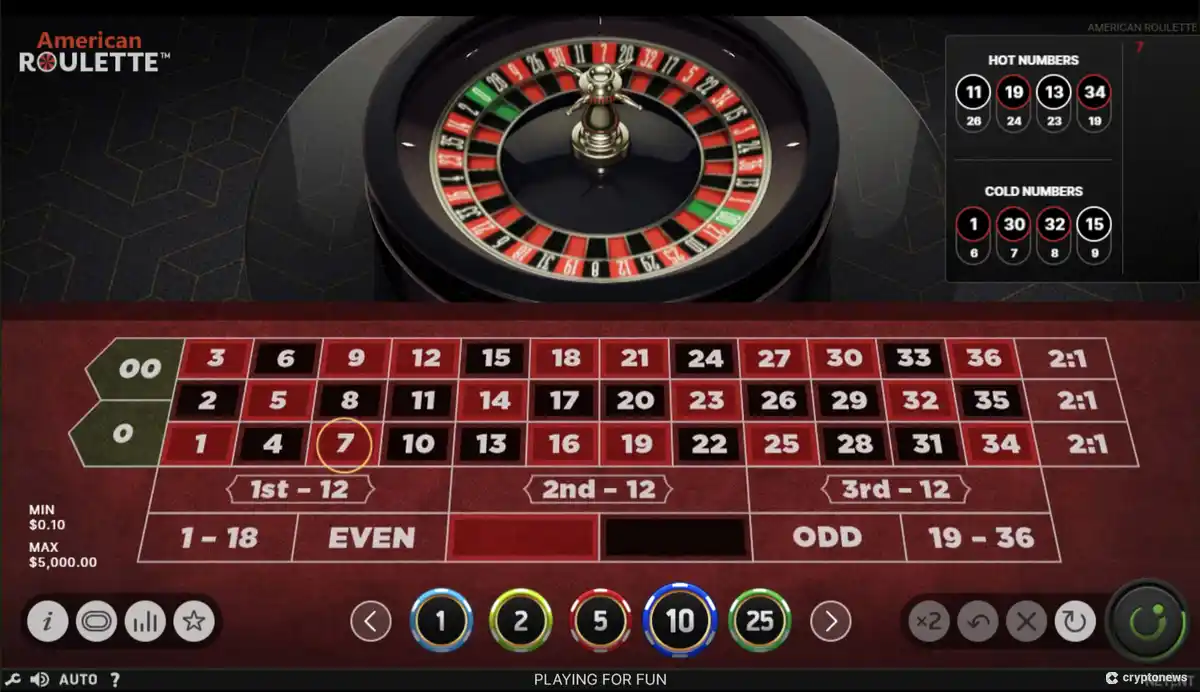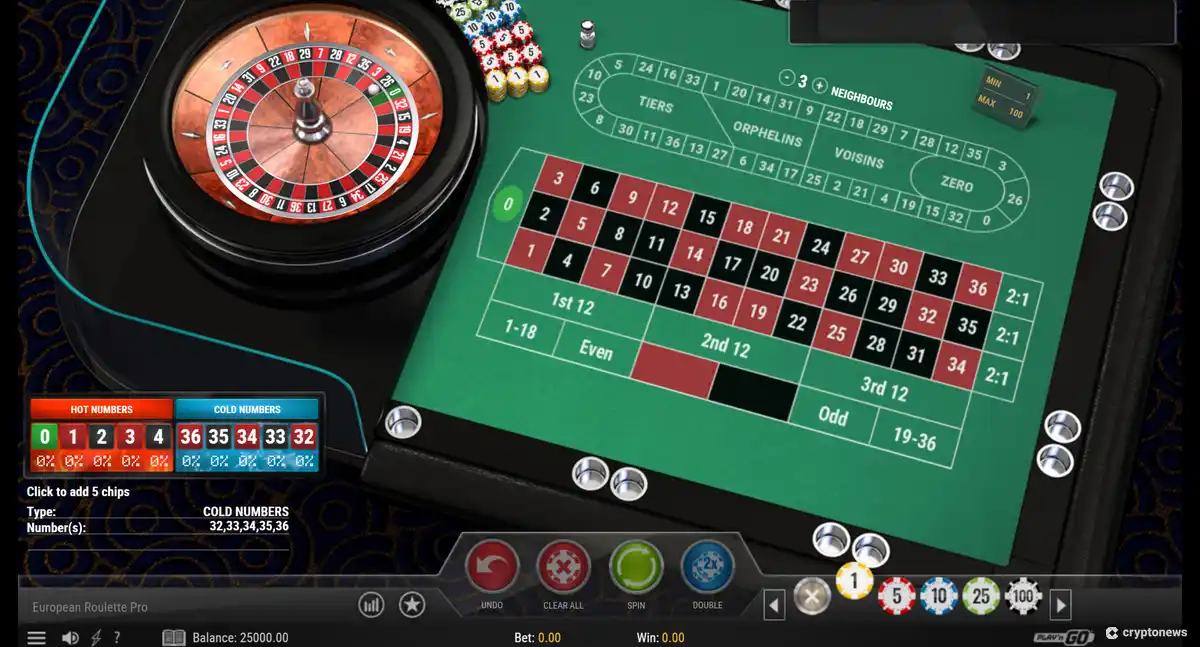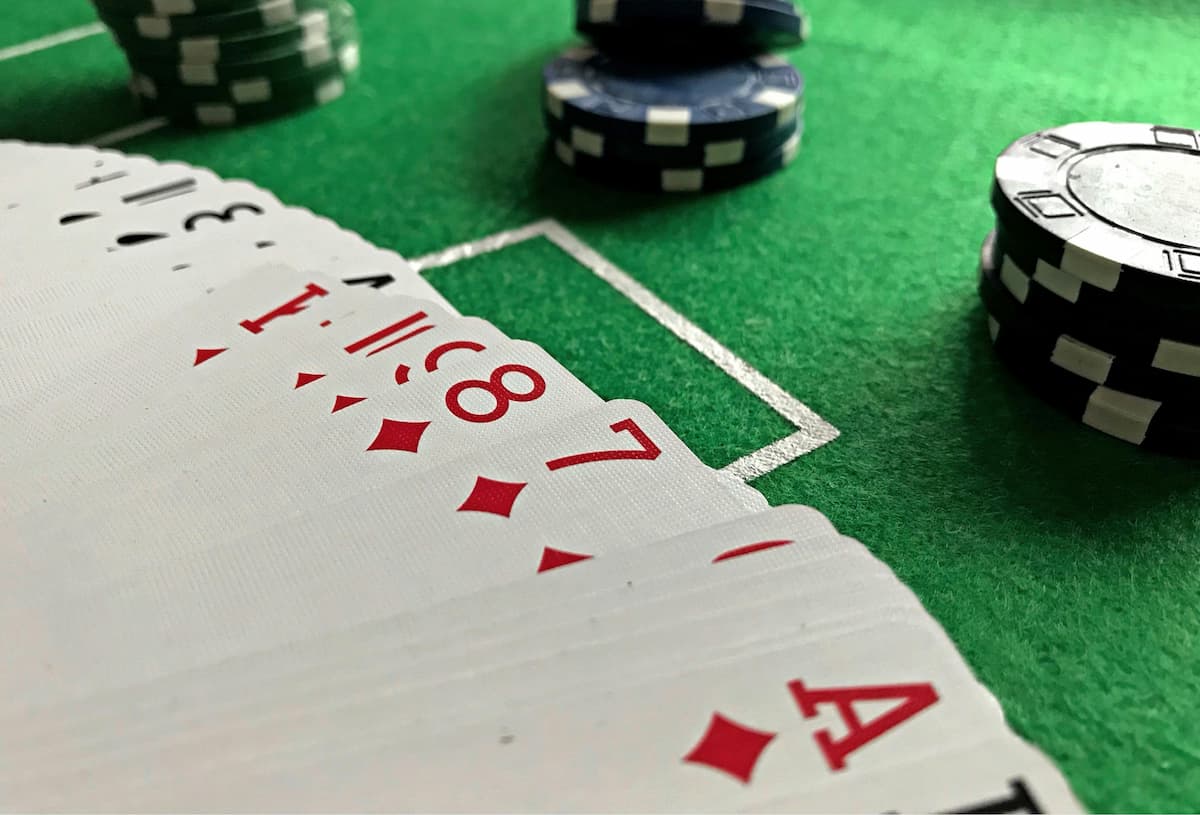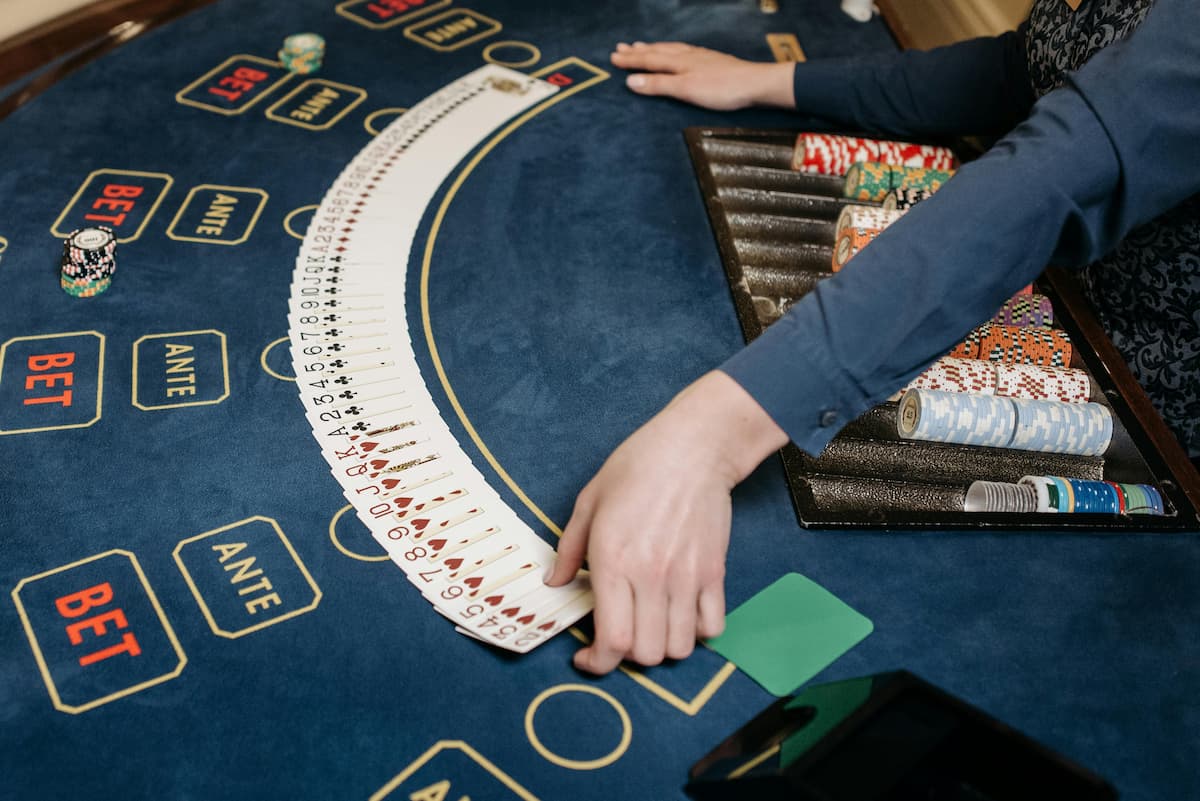Roulette Odds Guide: Probabilities, Payouts & House Edge
When playing casino games, it’s essential to pay attention to odds, as they reflect your chances of winning. They also form part of the equation that determines your potential payout if things are favorable. However, many players find it difficult to compute the numbers.
If you’re a roulette fan, understanding the odds of the popular wheel game is relatively straightforward. Usually, it depends on different factors, like the wheel layout and bet type. Read on as we explain more about roulette odds and their payouts.

The Basics of Calculating Odds in Roulette
Roulette is a table game with a diverse range of betting options. You’re allowed to bet on varying outcomes, like the ball landing on a particular number or color or within a certain range. Each of these potential outcomes has individual odds that determine payouts.
The many bet types are one primary reason players find it difficult to calculate roulette odds. However, it doesn’t have to be challenging. Generally, odds are calculated by dividing the number of winning outcomes by the total number of possible outcomes.
For instance, consider a straight-up bet, where you pick a single number. That means you only have one winning outcome out of 38 possible numbers of outcomes (in American roulette). The odds, then, would be 1/38, a probability of around 2.6%. If you go for a split bet where there are two possible outcomes, the odds will then be 2/38, about 5.3% in probability.
Clearly, the more the number of winning outcomes, the higher the probability of winning. However, higher probabilities come with lower potential winnings. In other words, placing a straight-up bet with a 2.6% chance of winning will return more than a split bet with a 5.3% chance. Let’s look at roulette odds payout variations to get the full picture.
Understanding Roulette Payouts
Each outcome on the roulette table has a fixed payout structure based on 36 numbers. That’s even though the roulette wheel has up to 38 pockets in American roulette and 37 in European roulette.
The payout is usually presented as a ratio, like 35:1 for a straight-up bet, for example. It means you’ll need to bet $1 to win $35. For a split bet, the roulette payout is 17:1, which means a $1 bet will return $17. As mentioned earlier, higher probabilities result in lower payouts.
Calculating the payout ratio involves dividing 36 by the total number of pockets you’re betting on. Afterward, you subtract one. Mathematically, it’s presented as 36 / Bet – 1. Consider the straight-up bet, for example. You’re only betting on one single number, so the payout will be 36/1 – 1, which gives 35; a payout ratio of 35:1.
How to Read the Roulette Payouts Chart
When you come across a roulette payout chart, you’ll find the ratio and odds for different bet types. For the roulette odds, you’ll notice that they’re lower for American roulette compared to European roulette. That’s because American roulette has a larger house edge, with its double zero pockets, whereas European wheel only has one zero pocket.
Here’s an example of a roulette table payout chart showing ratios and the odds for different variants:
| Bet Type | Payout Ratio | American Roulette Odds | European Roulette Odds |
| Even money bet | 1:1 | 47.37% | 48.65% |
| Column bet | 2:1 | 31.58% | 32.43% |
| Straight-up bet | 35:1 | 2.63% | 2.70% |
| Split bet | 17:1 | 5.26% | 5.41% |
| Street bet | 17:1 | 7.89% | 8.11% |
| Corner bet | 8:1 | 10.53% | 10.81% |
| Six-line bet | 6:1 | 15.79% | 16.22% |
The odds differ, but the payout ratio is the same. So, to read the chart, you should pay more attention to the ratio values. The first number signifies the potential winnings, while the second represents your bet size. From the chart, a Street Bet will require $1 to win $11.

The House Edge in Roulette
Casinos always ensure that there’s a chance for them to profit from roulette bets. That’s where the house edge comes in. It’s important to understand how the house edge affects roulette payout odds if you play the wheel game.
Notably, the house edge depends on the number of zeros on the roulette wheel. Many players find it confusing since you can still place a straight-up bet on the zero pocket and receive a payout. However, the zero pocket is excluded from many compound bets.
For instance, if you place money on an odd or even outcome, the ball landing in the zero pocket means you lose. The same applies if you bet on colors since the zero pocket is not red or black but green. Furthermore, it doesn’t count as part of any column or dozen.
In American roulette, there are two zero pockets and 38 pockets in total. That means a 2/38 house edge for the casino, equaling about 5.26%. On the contrary, European roulette has only one zero pocket and 37 in total. That signifies a 1/37 house edge, which is around 2.7%.
Which version of Roulette has the Lowest House Advantage?
European roulette is the version with the lowest house advantage. In the roulette odds payout table presented earlier, you could see that the probabilities were higher for European roulette compared to American roulette. The primary reason is the double zero pockets in the American variant.
It’s worth highlighting that the American roulette house advantage of 5.26% is almost two times that of European roulette at 2.7%. Hence, it’s not surprising that many players prefer playing the European variant.
If you’re particular about playing roulette with a low house edge, French roulette is one interesting variant to consider. The standard gameplay has the same 2.7% advantage as the European variant. However, it comes with two additional features, which, when active, reduce the house edge to around 1.3%. The features in question are En Prison and La Partage.
With En Prison, the casino will lock your even money bet and apply it to the next round if the ball lands on a zero. Then, if you win the next round, you’ll get your full wager back. This feature reduces the house edge to around 1.35%. La Partage is more straightforward. If the ball lands on a zero for your even money bet, you’ll get half your money back. With La Partage, the roulette table odds are higher, and the house edge reduces to 1.3%.
Types of Bets in Roulette and Their Odds
The roulette odds and payouts you find on the chart correspond to varying bet types. These bet types can be categorized into outside and inside bets, and each carries a different probability of winning. You can find out more about their odds below.
Outside Bets
These are generally the safer bet types when playing roulette. They usually consist of bets placed on a group of numbers and other characteristics away from the main grid of the betting table. With outside bets, you get a higher roulette probability of winning, but the payouts are lower.
A good example of an outside bet is the odds/even bet, where you predict that the ball will land on an odd or even number. The probability of winning is 47.37% in American roulette and 48.65% in European roulette. But the payout ratio is only 1:1. That means if you bet $1, you’ll only win $1.
You can get slightly higher profits by betting on columns and dozens. The payout ratio for these outside bets is 2:1, meaning a $1 bet will return $2. However, the odds reduce to around 31.58% and 32.43% for the two main roulette variants.
Odds Breakdown for Outside Bets
Here’s a rundown of popular outside bets in roulette and their different odds:
- Red/Black bet: 1:1
- Odd/Even bet: 1:1
- High/Low bet: 1:1
- Dozen bet: 2:1
- Column bet: 2:1
- Snake bet: varies based on sequence
- Neighbor bet: varies based on chosen numbers and their neighbors
Hence, the average roulette odds payout to expect from outside bets is between 1:1 and 2:1.
Inside Bets
These are the primary bet types in roulette game, which you’ll find at the center of the table. Unlike outside bets, they come with much lower probabilities of winning but with larger payouts. That’s because you’ll be betting on specific or smaller groups of outcomes.
A straight-up bet is the most popular type of inside side, where you simply put your money on a single number. Considering you’ll win with only one outcome out of a potential 38 or 37, the probability of winning is 2.63% or 2.7%. However, the payout is 35:1, so you get $35 from a $1 bet.
Another common inside bet is the split bet, where you put your money on two adjacent numbers. The winning odds are 5.26% and 5.41% for American and European roulette, respectively, which is quite low. But with a 17:1 payout, you can profit $17 with just $1 if you predict correctly.
Odds Breakdown for Inside Bets
Check out top roulette inside bets and their different payout rates below:
- Straight-up bet: 35:1
- Split bet: 17:1
- Street bet: 11:1
- Quarter bet: 8:1
- Basket bet: 8:1
- First five bet: 6:1
- Double Street bet: 5:1
Which Bets in Roulette Have the Best Odds?
The bets with the best odds in roulette are outside bets since you have a higher chance of winning. You can get as high as a 40% winning probability, which is significantly higher than what’s obtainable with inside bets. For instance, the straight-up inside bet only has around 2.6% winning odds.
However, as explained previously, bets with high odds have low payouts. The even money bet offers up to 47% odds, but the payout is only 1:1. Going for such a bet option may not be profitable in the long run, especially since there’s a 50% chance of winning or losing.
Do Casino Roulette and Online Roulette Have the Same Odds?
Yes, the casino roulette you play at land-based casinos and online gambling sites have the same roulette odds. That’s primarily because the house edge doesn’t change. American roulette maintains a 5.26% house edge whether you’re at a live or online casino. The same is true for European roulette, as the house advantage remains 2.7%.
However, it’s worth noting that there are many different roulette variants available at online casinos. So, besides American and European — and perhaps French roulette — you’ll get other options to play. These innovative versions may feature unique wheel structures with varying odds.

A good example is mini-roulette, an online casino variant that features only 13 pockets. You get numbers from 1 to 13 to bet on. Suppose you place a straight-up bet. That means the chance of winning is 1/13, which is about 7.7%. That’s much higher than the standard odds of American and European roulette.
So, before you play any online casino roulette, ensure you confirm the variant and if it comes with any unique rules. These are the factors that’ll help you determine the roulette odds. But if it’s the regular American or European version, the odds will be the same.
Can You Improve Your Odds in Roulette?
Many players who chase the roulette best odds seek ways to improve their chances of winning. While there is no way to guarantee wins in a game of chance, you can try out different strategies to see if they improve your returns. Here are some common strategies players employ when at the roulette table:
- Martingale: This strategy involves doubling your bet after each loss. The target is to recover your losses while still recording profit with a single bet. However, you can only apply this strategy if you have a large bankroll.
- D’Alembert: Here’s a technique where you increase and decrease your bet by one unit, depending on if you win or lose. Over time, if the strategy works, you’ll balance your wins and losses. Many experts use this system as it’s less aggressive.
- Fibonacci: This approach is mathematical, as it involves using the Fibonacci sequence to determine your bet sizes. You’ll progress through the sequence with each loss and return two steps after a win. The target is a gradual increase in money bets, but it can be both advantageous and disadvantageous.
You can apply any of the above strategies as you play the wheel game. However, the hard truth is that they won’t increase the roulette odds, as the outcome of each spin of the roulette wheel and ball is completely random.
If the roulette still seems super complicated for you, check out our full guide on how to play roulette.
Roulette Odds FAQ
What are the odds of winning roulette?
The odds of winning in roulette vary depending on your bet type and the roulette variant you’re playing. Generally, you can calculate the odds by dividing the number of winning outcomes by the total number of potential outcomes.
What are the odds on green in roulette?
The odds on green in roulette depend on the variant you play. For the American version, the odds on the roulette table for betting on green are 2/38 since there are double zero pockets. But in European roulette, it’s 1/37, as there’s only one zero pocket.
How many numbers are there on a roulette wheel?
The numbers on a roulette wheel vary. American roulette wheel has 38 numbers, including two zeros and numbers from 1 to 36. Meanwhile, in European roulette, there are 37 numbers, including one zero and numbers from 1 to 36,
What is the house edge in roulette?
The house edge in roulette refers to the advantage the casino has over players. In American roulette, it’s higher at 5.26% since the wheel has double zeros. But in European roulette, it’s lower at 2.7% as the wheel has only one zero.
What is the best bet in roulette?
The best bets in roulette are outside bets because they have a higher winning probability. However, the payout ratio is usually low, between 1:1 and 2:1.
What has better odds, blackjack or roulette?
Blackjack typically has higher odds than roulette. The base odds for blackjack are around 42.22% for players, while roulette has odds as low as 2.6%. However, roulette odds depend on the bet type and variant, and some outside bets have odds up to 40%.
References:
Roulette – Wikipedia.com
The mathematics of roulette – Probability.infarom.ro
Roulette | Rules, Odds & Betting Tips – Britannica.com
Roulette Odds Calculator – Calculator.Academy







 Nick Pappas
Nick Pappas 

